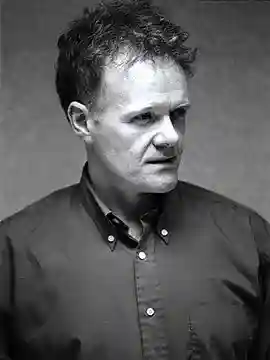I’m always amazed and grateful when a new idea for a story comes to me, when the gods of chance deliver one of those What if? moments. Something that stirs the imagination. It’s like a spell. The fingers itch to write, to capture the vaguely seen shape ahead, the blurred figure, whatever it might be. My new novel, A Man of Shadows, was born in such a way, from a number of separate ideas that suddenly joined together. Alice in Wonderland style, a tiny door was opened, allowing a glimpse into a curious world. Where would that pathway take me?
Italo Calvino’s Invisible Cities consists of fifty-five short accounts of imagined cities, and the people who live in them. Each city is unique, and odd, whether entirely surreal in its properties, or just off-kilter in some small way from our known reality. One city is built over a reflecting lake, so that every action or gesture made by a resident is mirrored exactly. Another city contains only men, each of them arriving there in pursuit of the same beautiful woman, who proves to be a phantasm, a vision seen in their dreams. So Calvino’s novel skirts around the edges of fantasy, magic realism, and science fiction, yet it contains no characters as we normally think of them, and hardly any action or suspense, or indeed, forward motion. It might be viewed as a collection of dreams.
I first read Invisible Cities in my twenties, and have returned to it every few years or so. It’s in no way my favourite kind of book, yet I find it quite fascinating, one of that small, select group of novels that are both experimental and readable. On my last read-through a rather exciting and unexpected thought came to me: would it be possible to set a detective story in each of these cities, with each murder or crime bound up in some way with the particular city’s unique strangeness? This was a thought experiment only, not a plan of action. But I made a mental note of the idea, and filed it away. A while later I was reading an article about Tokyo nightlife, and how entire areas of the city never go dark: the lights keep shining, the neon flashes, the games arcades and clubs and bars and shops and love hotels remain open twenty-four hours a day, every day of the year. The writer of the article described theses areas as day-zones. One of those moments of inspiration that writers are forever hoping for occurred: the spark, the fusing, when two ideas collide and merge. Immediately I saw that a city called Dayzone might operate as a landscape for a murder mystery.
Yet that still wasn’t enough. I needed more. For me, the artistic process is one of continual exploration, of adding images and themes to an existing idea, until they flower into new forms, phrases, characters, incidents, plotlines, locations, and so on. So I had the concept of the detective, a private eye, investigating a murder in the over-lit, overheated, ever-illuminated streets and buildings of a city called Dayzone. But in such a place wouldn’t people still want to do things associated with the night? To sleep, commit crimes, hide themselves for a few hours, or disappear entirely, and so on? A separate part of the city was needed, a nightside, a place that contained hardly any light at all. And so Nocturna was created. Another world for my detective to explore.
But it still wasn’t enough. I realised that the city had separated itself from the natural cycle of day and night. How would that affect the passing of time? How would the citizens measure time? And then, and entirely by chance, I learned about the establishment of the twenty-four international time zones in 1884: before then, in the early 19th Century, a person travelling across North America by steam train would need to change their pocket watch more than one hundred times! Now we were getting somewhere. Dayzone would be a city where time itself would start to dissolve.
I was ready to start writing.
Read part 2 HERE.
Get A Man of Shadows at Bookshop or Amazon
Get Invisible Cities at Bookshop or Amazon

About the author
Jeff Noon is an award-winning British cult novelist, short story writer and playwright. He won the Arthur C Clarke Award for Vurt, the John W Campbell award for Best New Writer, a Tinniswood Award for innovation in radio drama and the Mobil prize for playwriting.
He was trained in the visual arts, and was musically active on the punk scene before starting to write plays for the theatre. His work spans SF and fantasy genres, exploring the ever-changing borderzone between genre fiction and the avant-garde.








